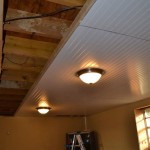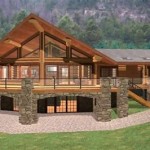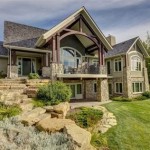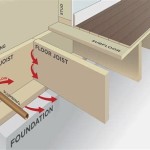Best Engineered Hardwood Flooring for Basements
Basements, often considered unfinished spaces, have become increasingly popular for various purposes, from home offices to entertainment rooms. However, the damp and unpredictable nature of these spaces presents unique challenges when choosing flooring. Engineered hardwood flooring stands out as a viable option, offering durability, aesthetic appeal, and moisture resistance, making it a suitable choice for basements. This article will delve into the intricacies of selecting the best engineered hardwood flooring for basements, highlighting key factors to consider and providing insights into optimal choices.
Understanding Engineered Hardwood Flooring
Engineered hardwood flooring consists of a plywood core, typically made from birch or poplar, topped with a thin layer of real hardwood veneer. This construction method imparts a number of advantages over solid hardwood. First, engineered hardwood is more dimensionally stable than solid hardwood, making it less susceptible to warping and cupping caused by fluctuating humidity levels often encountered in basements. Second, its multi-layer construction provides greater strength and durability, allowing it to withstand heavy foot traffic and resist scratches and dents. Finally, engineered hardwood is generally less expensive than solid hardwood, making it a more budget-friendly option.
Key Considerations for Basement Flooring
When selecting engineered hardwood flooring for a basement, it is crucial to consider several factors that will impact the flooring's performance and longevity. These include:
Moisture Resistance:
Basements are prone to moisture issues due to potential leaks, seepage, and high humidity levels. Opting for engineered hardwood flooring with a moisture-resistant core is essential. Look for flooring with a core made from plywood treated with moisture-resistant agents or a core composed of materials like bamboo or composite wood, which are naturally less susceptible to moisture damage.
Finish:
The finish applied to the hardwood veneer plays a vital role in its durability and aesthetic appeal. A polyurethane finish provides superior protection against scratches, stains, and moisture. Consider selecting a higher-gloss finish for a more polished look, or a semi-gloss or matte finish for a more understated appearance. A factory-applied finish is generally preferable to site-applied finishes, as it offers greater consistency and protection.
Installation:
The installation method for engineered hardwood flooring can significantly affect its performance in a basement. While glue-down installation provides excellent stability, it can be challenging in spaces with uneven subfloors common in basements. Floating installation, which uses a click-lock system to connect planks, offers greater flexibility and accommodates minor variations in subfloor levels. However, it's essential to ensure proper moisture control before installing floating floors to prevent moisture damage from compromising the system.
Best Engineered Hardwood Flooring Options for Basements
With the aforementioned considerations in mind, here are some top-rated engineered hardwood flooring options suitable for basement environments:
Bamboo Flooring:
Bamboo flooring is a sustainable and durable option that possesses natural moisture resistance. It is available in various colors and finishes, offering a wide range of aesthetic choices. Bamboo's inherent strength and hardness make it an excellent choice for high-traffic areas. However, it is essential to choose bamboo flooring specifically designed for damp environments, as not all bamboo flooring is moisture-resistant.
Engineered Hickory Flooring:
Hickory wood is known for its exceptional durability and rich color variations. Engineered hickory flooring provides a distinctive look and resists wear and tear, making it suitable for basements. Its natural hardness and resilience make it an excellent choice for areas with higher traffic and potential for impact. However, hickory is a denser wood, which can make it more challenging to install.
Engineered Oak Flooring:
Engineered oak flooring offers a classic elegance and versatility, making it a popular choice for basements. Its natural warmth and durability make it a suitable option for various styles and décor. Oak is also relatively affordable, making it a budget-friendly alternative. It's essential to select oak flooring with a moisture-resistant core and a protective finish to enhance its longevity in a basement setting.
In conclusion, engineered hardwood flooring offers a compelling option for basement flooring, providing durability, aesthetics, and resistance to moisture damage. By carefully considering factors such as moisture resistance, finish, and installation method, homeowners can choose the best engineered hardwood flooring to transform their basements into beautiful and functional living spaces.

The Best Wood Flooring For Basements Carlisle Wide Plank Floors

The Best Wood Flooring For Basements Carlisle Wide Plank Floors

Where To Get Cheap Flooring For Basements Reallycheapfloors America S Cheapest Hardwood

Invision Hardwood Blog Best Flooring For Basements

The Best Flooring For Your Basement Bigelow

Wood Flooring In The Basement Hgtv

The 8 Best Flooring Options For Basements

What Is The Best Flooring For Basements Get Pros And Cons

The Best Flooring For Basement Renovations Guide Reallycheapfloors America S Cheapest Hardwood

The Best Wood Flooring For Basements Carlisle Wide Plank Floors
Related Posts







